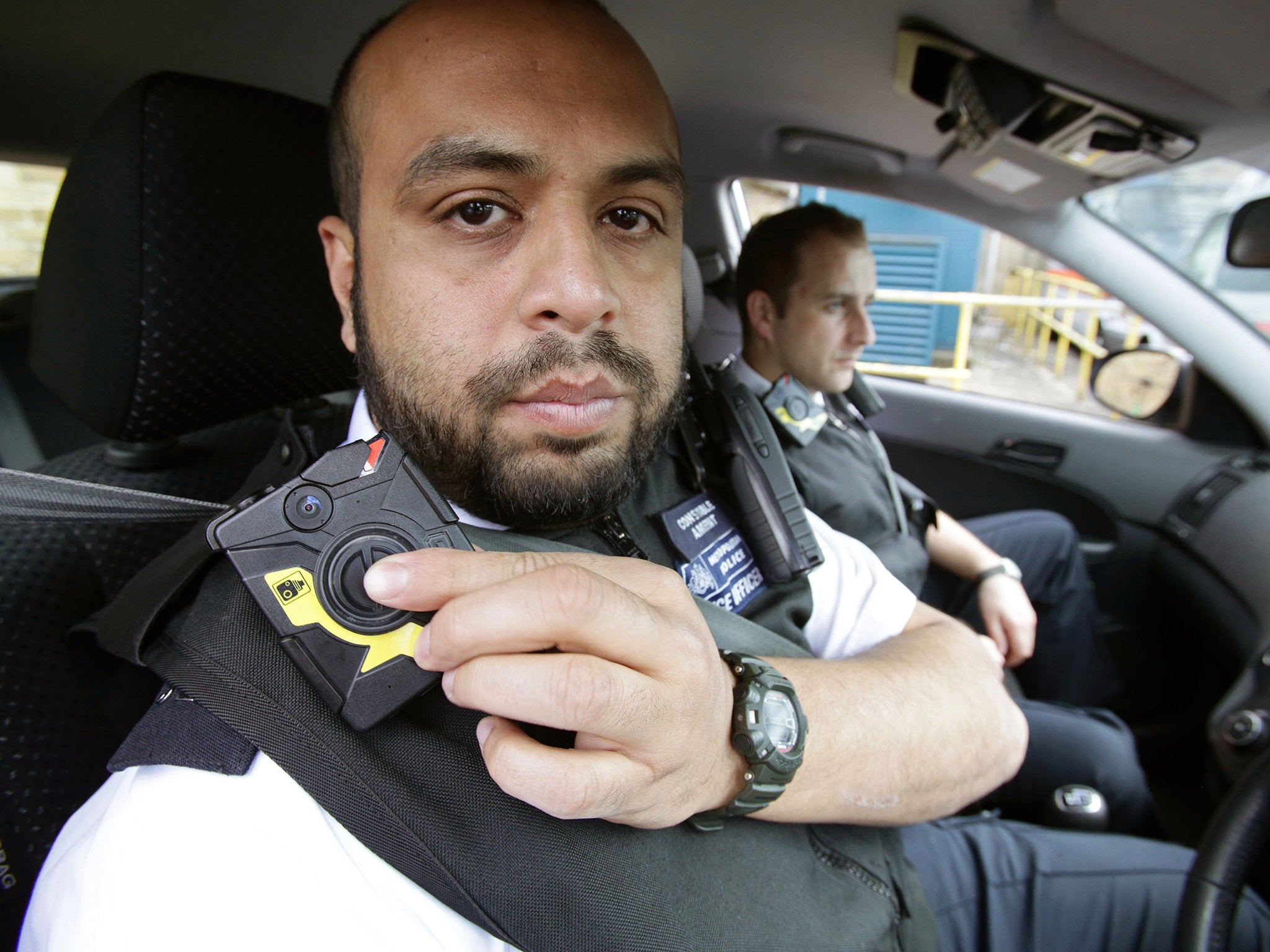Police body cameras cut complaints by 93 per cent
No other intervention 'in the history of policing' has had such a profound effect, researchers say

Your support helps us to tell the story
From reproductive rights to climate change to Big Tech, The Independent is on the ground when the story is developing. Whether it's investigating the financials of Elon Musk's pro-Trump PAC or producing our latest documentary, 'The A Word', which shines a light on the American women fighting for reproductive rights, we know how important it is to parse out the facts from the messaging.
At such a critical moment in US history, we need reporters on the ground. Your donation allows us to keep sending journalists to speak to both sides of the story.
The Independent is trusted by Americans across the entire political spectrum. And unlike many other quality news outlets, we choose not to lock Americans out of our reporting and analysis with paywalls. We believe quality journalism should be available to everyone, paid for by those who can afford it.
Your support makes all the difference.Cameras worn by the police dramatically cut the number of complaints against officers, research shows.
A research team from Cambridge University worked with almost 2,000 police officers across four UK police forces and two US police departments and monitored levels of complaints before and after the introduction of body worn cameras.
The study showed complaints from the public fell by 93 per cent over 12 months, compared with the year before.
Lead author, Dr Barak Ariel, from Cambridge University’s Institute of Criminology said no other intervention “in the history of policing” had seen such a profound effect.
Body-worn cameras have been introduced to police forces across the world in a bid to increase transparency amid widespread concerns over police legitimacy and the disproportionate targeting of ethnic minorities.
But previous studies into the cameras’ effectiveness have been limited in depth.
The Cambridge study recorded officers working over 1.4 million beat hours on more than 4,000 shifts.
The findings, published in the journal Criminal Justice and Behaviour, showed that before the introduction of the cameras, the police forces received a combined number of complaints totalling 1,539 over a 12-month period – amounting to 1.2 complaints per officer.
After the police were given cameras, the complaints against them fell to a total of 113 over the 12-month trial period. This amounted to just 0.08 complaints per officer – a fall of 93 per cent.
Dr Ariel said the cameras increase accountability for both police officers and the public and said the findings suggest a “profound sea change in modern policing”.
Announcing the results, he said: “There can be no doubt that body-worn cameras increase the transparency of frontline policing. Anything that has been recorded can be subsequently reviewed, scrutinised and submitted as evidence.”
“Individual officers become more accountable, and modify their behaviour accordingly, while the more disingenuous complaints from the public fall by the wayside once footage is likely to reveal them as frivolous.
“The cameras create an equilibrium between the account of the officer and the account of the suspect about the same event – increasing accountability on both sides.”
The study involved police forces in the West Midlands, Cambridgeshire, West Yorkshire, the Police Service of Northern Ireland, along with Rialto and Ventura police departments in California.
Even among control groups of police officers, who were not given cameras on specific weeks during the trial, the level of complaints still plummeted.
The research team describes this phenomenon as “contagious accountability” resulting in large scale behavioural change in police officers, and to some extent the public.
But the study warned that cameras must be switched on throughout interactions to have a net positive effect.
The research team found that officers who switched their cameras on mid-way through an interaction, were more likely to use force against suspects, and were more likely to be assaulted, as it could be viewed as escalating the situation.
“The jolt of issuing a verbal reminder of filming at the start of an encounter nudges everyone to think about their actions more consciously. This might mean that officers begin encounters with more awareness of rules of conduct, and members of the public are less inclined to respond aggressively,” said Dr Ariel.
Join our commenting forum
Join thought-provoking conversations, follow other Independent readers and see their replies
Comments